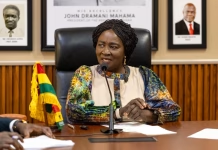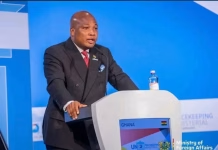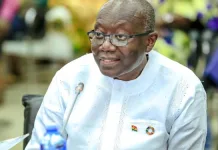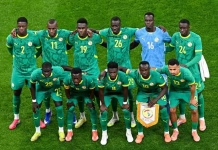
Sierra Leone is looking to Ghana for inspiration in reforming its gold sector, as the West African nation grapples with the persistent problem of smuggling and declining mineral revenues. Finance Minister Sheku Fantamadi Bangura visited Accra on Thursday, September 18, 2025, where he met with Sammy Gyamfi, the Chief Executive Officer of the Ghana Gold Board (GOLDBOD). Their discussions centered on how Sierra Leone could adapt Ghana’s relatively new framework for managing artisanal and small-scale gold production, with an eye toward strengthening transparency, boosting exports, and increasing government earnings.
Minister Bangura praised Ghana’s approach as a forward-thinking effort to formalize its gold industry, noting that the licensing, assaying, and traceability mechanisms introduced under GOLDBOD have created a model that ensures accountability and fair value for the state. He emphasized that such reforms could serve as a cornerstone for Sierra Leone’s economic recovery, particularly by plugging revenue leakages caused by unregulated exports and illicit trading networks. Smuggling has long deprived the Sierra Leonean government of significant income, and curbing it has become a national priority as the country struggles with fiscal pressures.
For his part, Mr. Gyamfi welcomed the potential partnership and reiterated GOLDBOD’s readiness to provide technical assistance, share best practices, and collaborate on knowledge transfer. He explained that by centralizing gold buying, introducing rigorous assaying systems, and enforcing responsible sourcing, Ghana has not only improved oversight of its gold trade but also built stronger investor confidence in the sector. The Gold Board, established earlier in 2025 under new legislation, has been empowered to buy, assay, and export gold from licensed artisanal and small-scale miners. Its mandate goes beyond revenue collection—it also seeks to reduce illegal flows, strengthen anti-money laundering controls, and stabilize foreign exchange inflows through greater transparency.
The prospect of Sierra Leone adopting a similar system has drawn interest but also caution. While centralizing gold sales and formalizing trade could enhance state revenues and curb criminal networks, experts warn that any reform must carefully balance state oversight with the need to keep markets competitive. There are also concerns about ensuring that small-scale miners, who make up the bulk of Sierra Leone’s gold producers, are not marginalized in the process. Advocates stress that protections must be built into the system to prevent exploitation, while simultaneously encouraging compliance with new licensing and traceability rules.
Both governments agreed to continue technical discussions, with plans for possible follow-up visits and training sessions involving mining officials and regulators. A memorandum of understanding is also being considered, which would set out specific areas of cooperation between the two countries. For Sierra Leone, the success of such a partnership could mark a turning point in efforts to harness its gold resources more effectively, transforming a sector long plagued by smuggling and inefficiency into a driver of sustainable national growth.




















